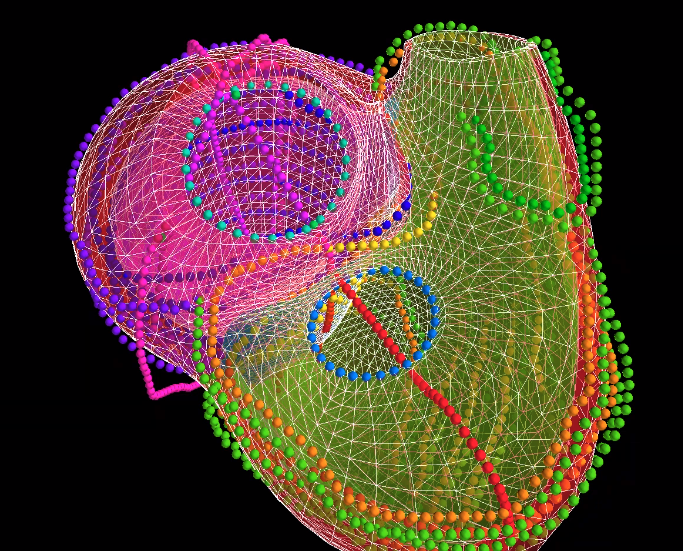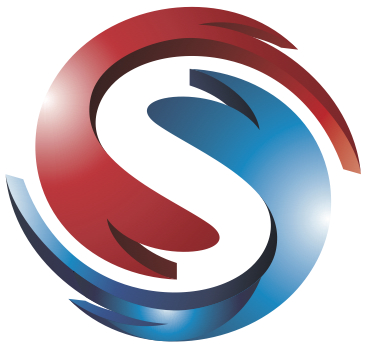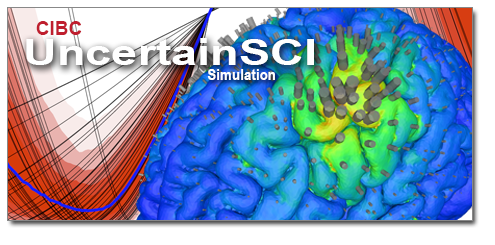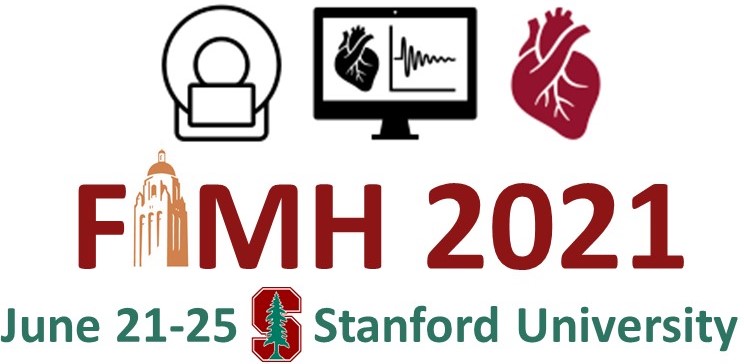Workshops
FIMH-2021 will host two pre-conference workshops on June 21, 2021, Cardiac Atlas Project, SimVascular, and one post-conference workshops on June 25, 2021 UncertainSCI.
Note, the main conference will take place between June 22 and June 24, 2021.
Cardiac Atlas Project Workshop on Congenital Heart Disease (08:00am - 10:00am PDT, June 21)
Organizers:
- Alistair Young, King’s College London
- Andrew McCulloch, UCSD
The Cardiac Atlas Project is a large-scale database of cardiac imaging exams, segmentations, annotations, and associated clinical data. CAP aims to develop a shareable and web-accessible atlas of normal and pathological heart structure and function. One goal of CAP is to facilitate collaborative statistical analysis of regional heart shape and wall motion and characterize cardiac function among and within population groups.
The CAP workshop will focus on congenital heart disease (CHD). Patients with congenital heart disease often require serial imaging examinations to monitor progression and determine the optimal time for interventions. While current global metrics of cardiac size and function, such as indexed ventricular mass and volumes, can identify patients at risk of adverse outcomes, they are not adequate to explain the underlying mechanisms causing them. Recently, data sharing initiatives enable collation of larger numbers of cases in order to enable morphometric informatics approaches.
Detailed program can be found here.
Invited speakers
- Tetralogy of Fallot: Insights into the failing heart Kuberan Pushparajah, King’s College London
- Biventricular Shape Markers Discriminate Pulmonary Valve Replacement in Repaired Tetralogy of Fallot Sachin Govil, University of California San Diego
- Right ventricular deformation and 4D flow analysis in tetralogy of Fallot Liang Zhong, National Heart Centre Singapore , Duke NUS Medical School, National University of Singapore
- Biomechanical modeling for congenital heart diseases Radomir Chabiniok, University of Texas Southwestern Medical Center

Image Courtesy of Anna Mira.
SimVascular Workshop and New User Training (10:30am - 12:30pm PDT, June 21)
Organizers:
- Alison Marsden, Stanford University
- David Parker, Stanford University
- Shawn Shadden, UC Berkeley
- Nathan Wilson, Open Source Medical Software Corporation

SimVascular is the only fully open source software package providing a complete pipeline from medical image data to cardiovascular blood flow simulation results and analysis (www.simvascular.org). It offers capabilities for image segmentation, unstructured adaptive meshing, physiologic boundary conditions, and two Navier-Stokes finite element solvers with fluid structure interaction capabilities, including large deformation motion with an Arbitrary Lagrangian Eulerian (ALE) formulation. An accompanying vascular model repository provides over 100 clinical data sets with simulation results from different parts of the vasculature to enable research.
Extensive online documentation and tutorials with clinical examples are provided online. In this workshop, we will interactively take new users through a step-by-step tutorial, covering the basic steps of model construction, meshing, flow simulations, and best practices for high quality results. We will also introduce several new features of SimVascular, including a module for image segmentation with machine learning, a python scripting interface, and a pipeline for reduced-order modeling with a 1D solver. Following a series of interactive demonstrations, we will moderate a question and answer session for current and potential users.
UncertainSCI Uncertainty Quantification Workshop (08:00am - 11:30am PDT, June 25)
Organizers:
- Rob MacLeod, University of Utah
- Akil Narayan, University of Utah
- Jess Tate, University of Utah
- Sumientra Rampersad, Northeastern University

UncertainSCI is a Python-based toolkit that harnesses modern techniques to estimate model and parametric uncertainty, with a particular emphasis on needs for biomedical simulations and applications. This toolkit enables non-intrusive integration of these techniques with well-established biomedical simulation software.
For the workshop schedule and more information, please visit the workshop homepage here

